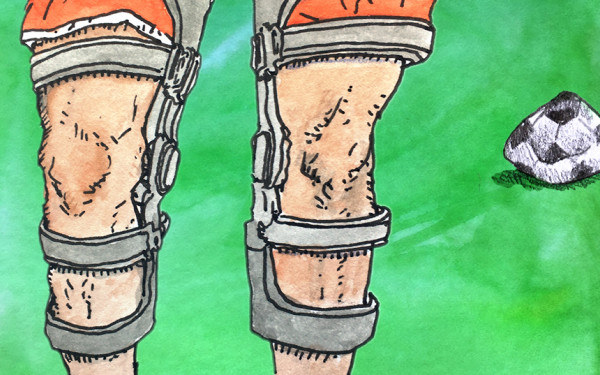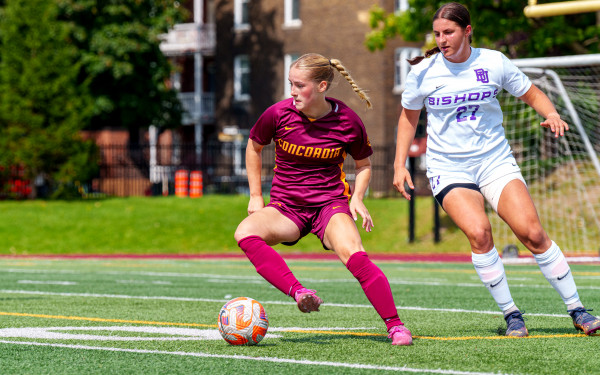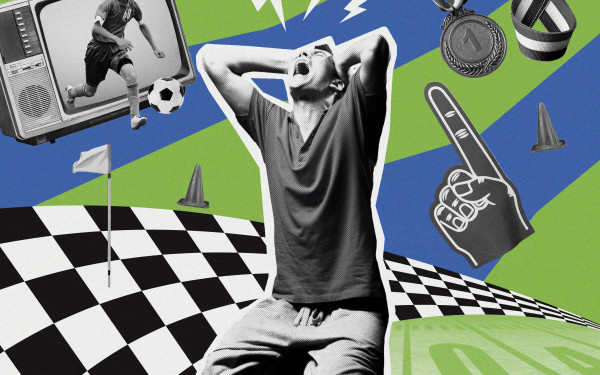Breaking a long-lasting sweat
How to tackle your New Year’s resolution to stay active
Myriam Havel used to be very active. She played competitive basketball, volleyball and track and field. But when COVID-19 hit, she stopped all her activities. This year, however, she took on the New Year’s resolution of getting back into sports all over again.
“I'm really hoping to manage my stress and build some strength because I have some previous sports injuries,” said the psychology student. “So, it's important to me to build up my muscle strength and prevent more injuries from happening and manage my pain a little bit.”
As part of her resolution, Havel took to the gym and signed up for weekly yoga and Pilates classes.
“[Working out again] has been really nice. It's definitely an adjustment in terms of bringing it into my schedule and being consistent about it, given all the other things I do,” said Havel. “So far, it's fine, but when my course load gets more intense closer to midterms and finals, it's gonna be more of a challenge.”
Many Concordia students have taken up going to the gym in January. Michelle Dodds, manager of Campus Recreation, has seen a spike in subscriptions at Le Gym this month—but also September 2023, both because they mark the start of a term.
“Not only is it a rise in membership sales, it's also a rise in the general population being at the gym,” she said.
Dodds added that she sees this pattern emerge every year. She noted that usually, the crowd dwindles as the semester progresses. One study showed that people are most likely to give up on their resolution within the first month.
According to Simon Bacon, professor in the department of applied health, kinesiology and physiology, the unusual timing of the new year contributes to collective failures.
“In many instances, the new year is a terrible time to start trying to change your behaviour,” said Bacon. He added that the New Year’s has a cultural pressure to adjust habits. “What does it take to change behaviour?”
To answer that question, Bacon said having internal goals and motivations is important to succeed. “If it's not special to you, it's gonna be very difficult to maintain that behaviour change,” he said. For instance, in Havel’s case, that drive stems from preventing injuries.
Bacon added that breaking down the overarching goal in simple and realistic steps, as well as self-monitoring to establish a baseline of physical activity and diet, also helps long-term success.
Most of all, Bacon explained that any level of physical activity is better than doing nothing.
“Think about changes that you can ingrain into your routine,” he said. “Any small change is a great starting point and it'll be the launchpad for bigger change down the line.”
Despite all these parameters, failure remains a possibility, and Bacon said that it’s part of the process.
“Nobody changes their behaviour and does it perfectly,” he said. “You’ve got to learn to have that level of forgiveness. Don’t let it totally subvert the 15 times you’ve done it already. Success is what you need to hang on to.”
This article originally appeared in Volume 44, Issue 9, published January 30, 2024.







